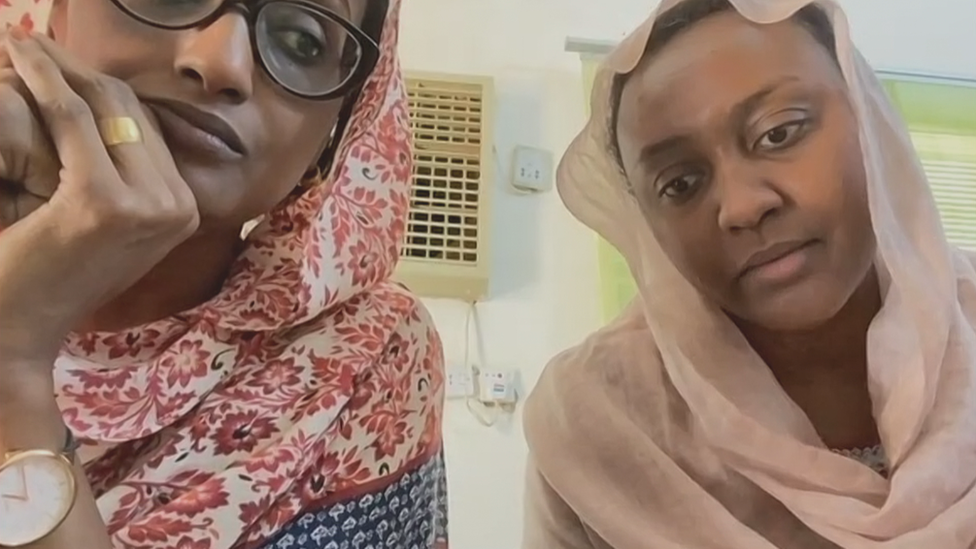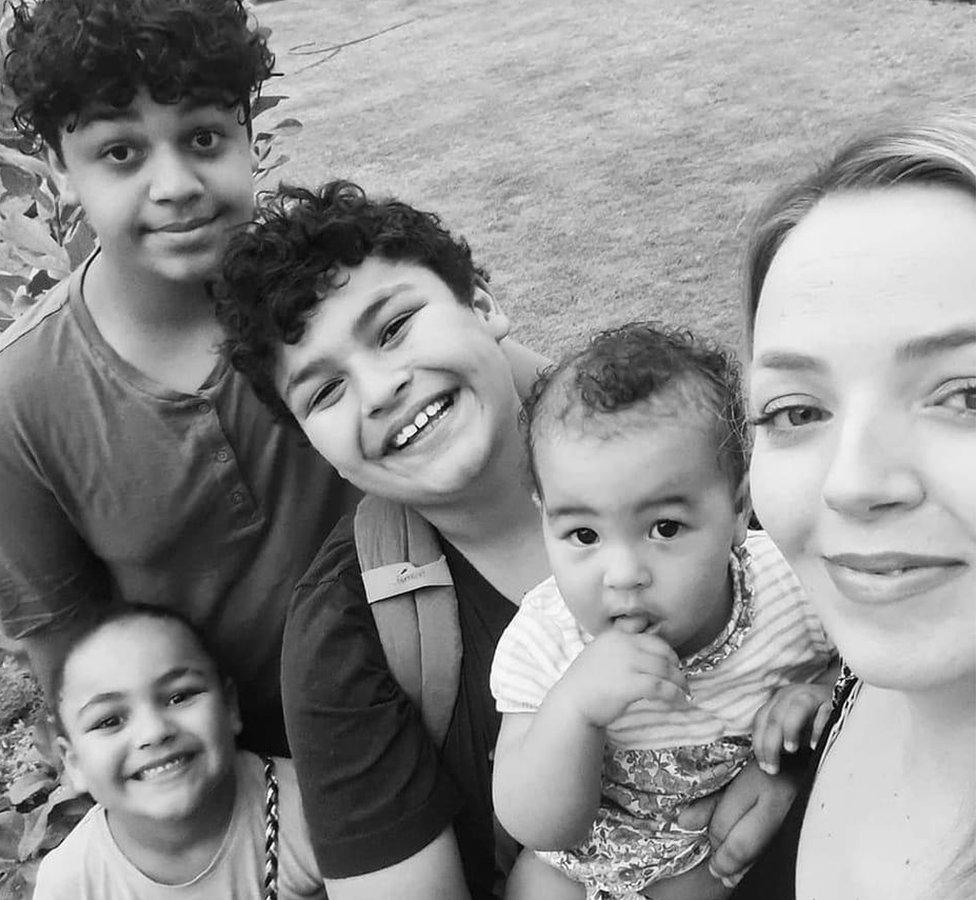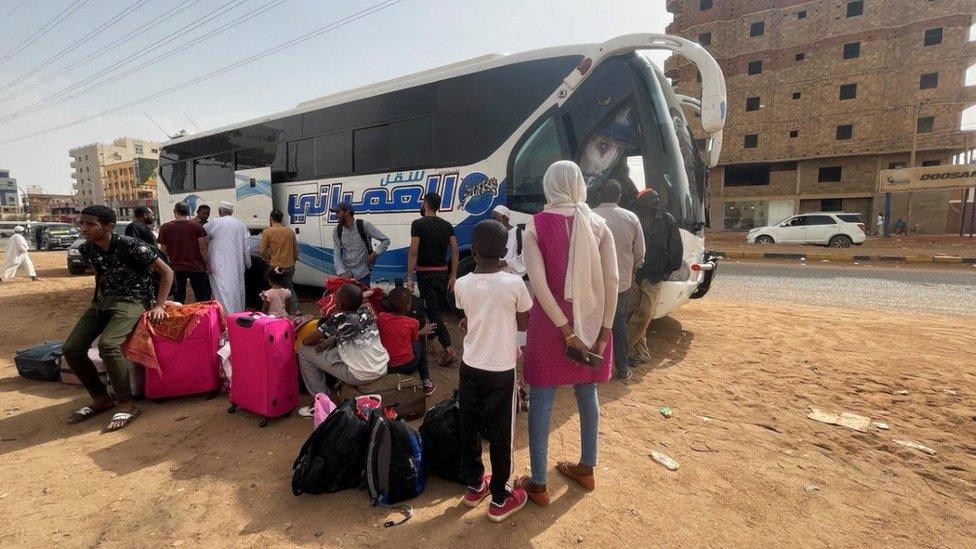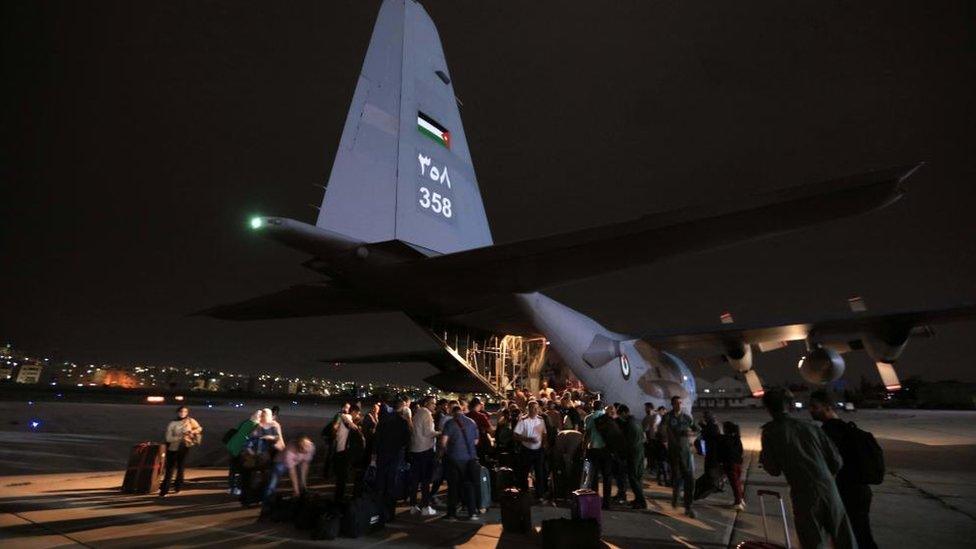Sudan violence: Scottish family tells of gunshots at their door
- Published
Amar Osman said the situation in Sudan was "very scary"
A terrified Scottish family have told of the gunshots at their door, as they try to flee the violence in Sudan.
Amar Osman from Dunfermline, who is visiting relatives near Khartoum, said the situation was "very scary".
The Red Cross said people were making "desperate attempts" to escape after more than a week of fighting there.
The UK government evacuated embassy staff in an operation at the weekend, but said it had "severely limited" ability to extract British citizens.
Mr Osman was with his wife Fatma Giha in Omdurman, near Khartoum, when the crisis started.
"They were running along my street last night shooting and chasing people," he told BBC Scotland.
"We locked all of the doors and went right in the middle of the house.
"There's people now robbing and taking chances since there's no police or armies.
"People are going into houses with guns and taking everything: phones, money, shoes. It's getting very wild."
Watch: Gunfire reaches house of Brit visiting Sudan
A power struggle between Sudan's regular army and a powerful paramilitary force has led to violence across the country for more than a week.
Electricity is scarce and food and water supplies are running out for many.
The family registered for help from the UK government, but said days had passed with no response.
Ms Giha, who is a consultant for the World Health Organisation, said the family had hoped for "some arrangement to be made" with the British embassy.
She said: "No-one contacted us, despite the fact that other countries have already evacuated their people from Sudan and are working on this, like the Canadians and Turkish."

Fatima Giha and her sister Amina Giha are trapped in Sudan
Without government support, the family attempted to escape to Egypt via bus. The private organisers asked for nearly seven times the normal journey price - but the bus did not arrive.
Mr Osman said: "We'll try other companies and buses.
"But there's no fuel for these buses and if you get some, they'll ask for a lot of money for it.
"We'll just have to lock up the doors and sit and wait and see what happens."

Donald Gillies' niece Jennifer is in Khartoum with her four children
Meanwhile, Donald Gillies from Islay has urged the government to do more to help British nationals such as his niece Jennifer, who is stranded in Khartoum with her Sudanese husband and their children.
Mr Gillies said Jennifer went to her teaching job one day and the next day the airport was bombed.
"It's pretty desperate," he told BBC Radio's Good Morning Scotland programme.
"They're running low on food and water. They took the government advice and hunkered down.
"They moved out of the initial area in which the fighting was quite heavy and moved into another house in the suburbs.
"I imagine fighting would be spreading into the area quite soon. So they feel abandoned."
Mr Gillies said his local MP Brendan O'Hara had been in touch with the family, but there had been no direct contact with the Foreign Office.
"The British government has done everything they can to remove the British government employees, and they have left the civilians behind," he said.
"And that is pretty shameful in my opinion. There must have been intel that this crisis was going to kick off."
Foreign Secretary James Cleverly has said relocated embassy staff would continue to support British nationals in Sudan.
The UK government has been approached for comment.
Related topics
- Published24 April 2023

- Published24 April 2023

- Published24 April 2023
